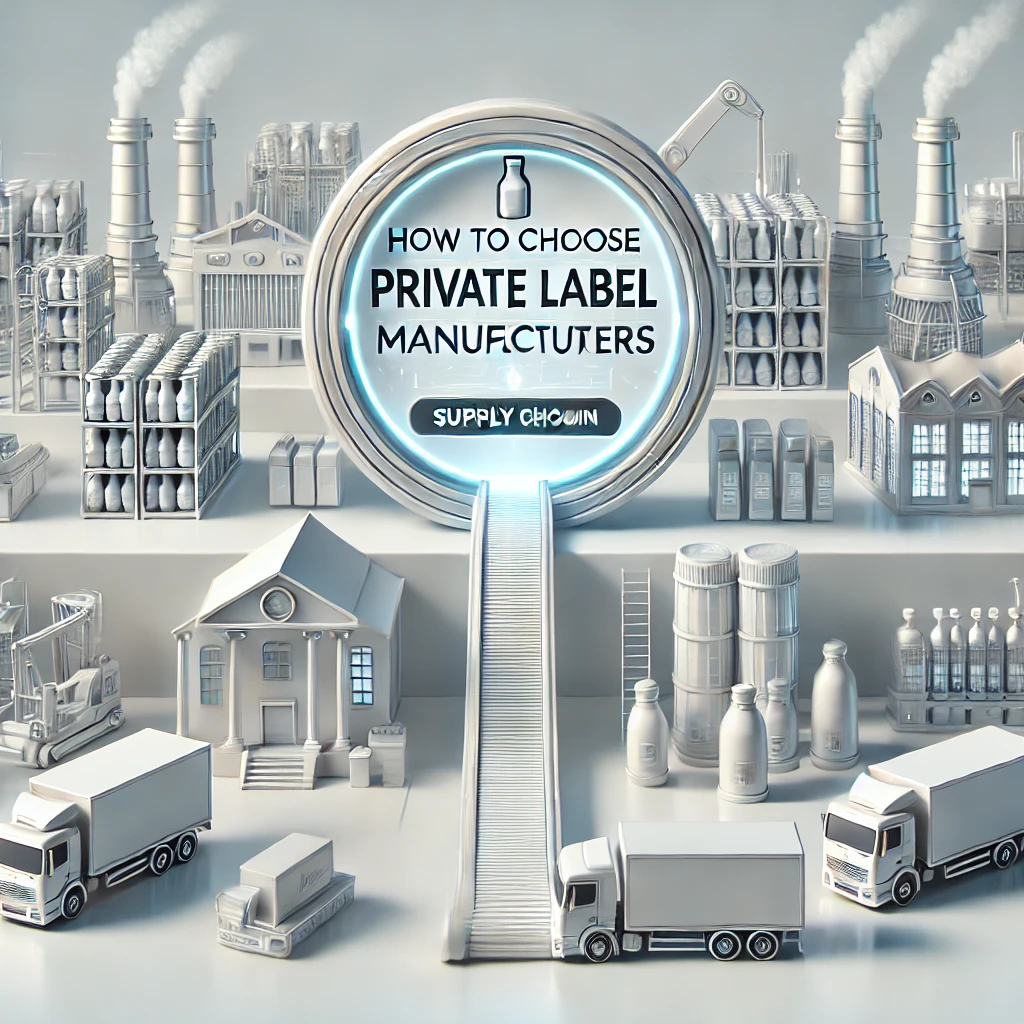Choosing the right private label manufacturer is key to launching successful products. With the right partner, you can produce high-quality items at the best cost. Let’s dive into what to consider when selecting a manufacturer for your private label products.
Understanding Private Label Manufacturing
Private label manufacturing is when companies create products for other brands to sell under their own name. This allows supermarkets, stores, and e-commerce businesses to offer unique products without the need to build their own manufacturing plants.
- What Is Private Label Manufacturing?
- Simplifies product creation for brands
- Helps build a unique identity for stores
- Supports businesses without high production costs
Why Choosing the Right Manufacturer Matters Your private label manufacturer is a big part of your product’s success. They help you control costs, meet quality standards, and create consistent products.
How to Identify Potential Private Label Manufacturers
Finding the right manufacturer takes time and research. Here are key steps to identify potential partners:
- Online Research
- Use directories like Alibaba or ThomasNet
- Search for specific product manufacturers
- Industry Events and Trade Shows
- Attend fairs to meet manufacturers in person
- Build relationships and discuss needs
- Networking with Other Brands
- Talk to others in your field for recommendations
- Gather real experiences about manufacturers
- Consider Location
- Local vs. overseas production impacts delivery speed and costs
- Local can be better for quality control, but overseas may offer lower costs
Evaluating Manufacturer Capabilities and Quality
Once you have potential options, evaluate them on these points:
- Quality Standards
- Request samples to check the quality
- Ensure they meet industry standards (ISO, GMP certifications)
- Production Capacity
- Confirm they can meet your order sizes
- Discuss growth plans if you plan to scale
- Technology and Equipment
- Advanced technology can mean better quality and consistency
- Outdated equipment may lead to issues in large orders
Analyzing Costs and Budget
Cost is a major factor in private label manufacturing. Balance quality with affordability.
- Product Pricing and Markup
- Know your profit margins and set your maximum costs
- Bulk Order Discounts
- Ask about discounts for higher quantities
- Shipping and Import Costs
- Factor in transportation fees, especially for international partners
Quality Control and Testing
Testing is essential before launching your product. Here’s how to approach it:
- Initial Product Testing
- Check durability, performance, and safety
- Batch Testing
- Test samples from each production batch for consistency
- Regular Quality Audits
- Schedule audits with the manufacturer to ensure long-term standards
Building a Strong Relationship with Your Manufacturer
Good communication is essential for a lasting partnership. Follow these tips:
- Clear Contracts and Agreements
- Include product specifications, timelines, and penalties for delays
- Regular Updates
- Stay in touch throughout production for updates
- Be Transparent and Respectful
- Build trust by treating your manufacturer as a partner
Table of Key Manufacturer Selection Tips
| Criteria | Details |
|---|---|
| Quality Standards | Certifications and quality testing |
| Production Capacity | Can they scale with you? |
| Technology | Updated for quality and efficiency |
| Cost | Fits within budget, offers bulk deals |
| Shipping | Affordable and timely delivery options |
Common Mistakes in Private Label Manufacturing
- Ignoring Quality for Cost
- Low cost may mean low quality, affecting brand image.
- Poor Communication
- Misunderstandings can cause delays or incorrect products.
- Not Checking Certifications
- Without certifications, products may not meet legal requirements.
- Lack of Testing
- Testing is essential to ensure long-term product consistency.
Tips for Managing Your Private Label Partnership
- Regular Feedback
- Provide constructive feedback to improve products.
- Monitor Performance
- Keep an eye on manufacturer reliability over time.
- Stay Flexible
- Be open to making adjustments in production when needed.
Conclusion
In summary, choosing the right private label manufacturer involves research, testing, and communication. Focus on quality, cost, and reliability to find a partner that aligns with your business goals. With a solid partnership, you’ll be well-positioned for private label success.

